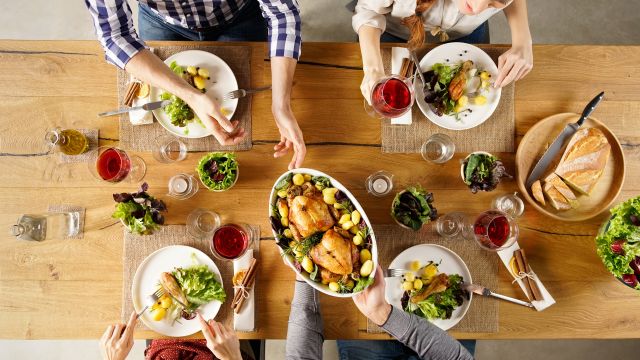Do you ever get that bloated feeling after eating certain foods? Pain in the belly? Diarrhea, constipation or both? Then you may have irritable bowel syndrome (IBS). There aren’t any diagnostic tests and researchers aren’t sure what causes it, but a certain diet, called the low FODMAP diet, may help ease its symptoms.
FODMAPs—short for fermentable oligosaccharides, disaccharides, monosaccharides and polyols—are “sugars that our bodies aren’t perfectly designed to digest,” explains Eric Liu, MD, an intestinal surgeon with Presbyterian St. Luke's Medical Center in Denver, Colorado.
According to Dr. Liu, when these FODMAPs enter the colon, the bacteria that live in the digestive system begin to break them down. “They absorb the sugars but they produce a lot of gas, which can be very uncomfortable,” Liu says. The sugars also cause water to seep into the colon, which can cause diarrhea, says Liu.
A diagnosis of exclusion
The causes of IBS are not well-known and there are no diagnostic tests for the condition. Diagnosing IBS means ruling out other conditions, such as colon cancer or inflammatory bowel diseases like Crohn’s disease or ulcerative colitis, says Liu. “Someone may have abdominal pain and cramps, bloating and changes in bowel habits like constipation and diarrhea,” he says. “You want to rule out the unusual diseases, and when you’re stuck you go to IBS.”
A low-FODMAP diet
Eating a low-FODMAP diet is more akin to avoiding an allergen than it is a traditional diet based on eating fewer calories to lose weight. “It’s all about choices, rather than the amount you eat,” says Liu.
If you’re trying to eat a low-FODMAP diet, avoid these:
- Onions
- Garlic
- Celery
- Sweet corn
- Apples
- Pears
- Mangos
- Watermelon
- Peaches
- Milk
- Yogurt
- Ice cream
- Legumes
- Rye
- Wheat
- Cashews
- Pistachios
Some low-FODMAP alternatives include:
- Alfalfa
- Green beans
- Peppers
- Carrots
- Cucumber
- Lettuce
- Tomatoes
- Zucchini
- Bananas
- Oranges
- Grapes
- Melon
- Beef
- Chicken
- Fish
- Tofu
- Almonds
- Rice
- Quinoa
Talk to the pros
It’s important to talk to healthcare providers before you start a low-FODMAP diet. You’ll need a diagnosis of IBS from your doctor, and you’ll have to work with a nutritionist to implement the diet. The beginning of the diet is very restrictive, according to Liu, and then gradually more foods are introduced. “It’s complicated,” he says. “Always work with a nutritionist so you don’t miss out on vital nutrients.”
Liu does not recommend a low-FODMAP diet for anyone who does not have IBS, so it’s important to get a diagnosis first. “It’s probably not worth it for someone without IBS,” he says. “I’d rather have someone have a diet that’s rich in fruits and vegetables that are good for other things, like overall metabolism, energy or cancer prevention. The tradeoffs aren’t worth it.”






